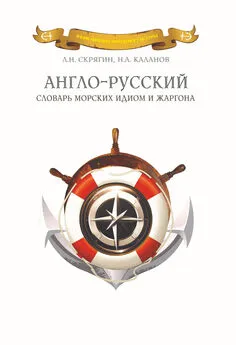Adam Makkai - Словарь американских идиом: 8000 единиц
- Название:Словарь американских идиом: 8000 единиц
- Автор:
- Жанр:
- Издательство:неизвестно
- Год:неизвестен
- ISBN:нет данных
- Рейтинг:
- Избранное:Добавить в избранное
-
Отзывы:
-
Ваша оценка:
Adam Makkai - Словарь американских идиом: 8000 единиц краткое содержание
Это обновленное и дополненное издание, содержащее более 8000 идиоматических
слов и выражений, причем каждое из которых снабжено грамматическим объяснением
и практическим примером. Словарь содержит лексемные идиомы, фразеологические
единицы и поговорки, имеющие особенное значение. В нем приведены наиболее
употребительные выражения только американского английского языка. Этот словарь — идеальное пособие для студентов, часто разъезжающих бизнесменов и просто
путешественников.
Словарь американских идиом: 8000 единиц - читать онлайн бесплатно полную версию (весь текст целиком)
Интервал:
Закладка:
[put to it] {adj. phr.} Hard pressed; having trouble; in difficulty; puzzled. •/ When he lost his job, he was rather put to it for a while to provide for his family. / •/ The boy was put to it to answer the teacher’s question. /
[put to rights]or [set to rights] {v. phr.} , {informal} To put in good order; clean up. •/ It took the company a long time to put the office to rights after the fire. / •/ It took Mrs. Smith an hour to set the room to rights after the party. /
[put to sea] {v. phr.} To start a voyage. •/ The captain said the ship would put to sea at six in the morning. / •/ In the days of sailing ships, putting to sea depended on the tides. /
[put to shame] {v. phr.} 1. To disgrace. •/ The cleanliness of European cities puts our cities to shame. / •/ That filthy dump puts our town to shame. / 2. To do much better than surpass. •/ Einstein put other physicists to shame when he proved his theory of relativity correct. /
[put to sleep] {v. phr.} 1. To cause to fall asleep. •/ Mother used to put us to sleep by telling us a good-night story and giving us a kiss. / 2. To kill with an injection (said of animals). •/ Dr. Murphy, the veterinarian, put our sick, old dog to sleep. /
[put to the sword] {v. phr.} , {literary} To kill (people) in war, especially with a sword. •/ The Romans put their enemies to the sword. / •/ In some wars captives have been put to the sword. /
[put to use] {v. phr.} To use. •/ During the early part of the Korean war the cooks and office workers of the U.S. Army were put to use in battle. / •/ Henry decided to put his dictionary to use. / •/ I wish you’d put the lawn mower to use! /
[put two and two together] {v. phr.} To make decisions based on available proofs; reason from the known facts; conclude; decide. •/ He had put two and two together and decided where they had probably gone. / •/ It was just a mater of putting two and two together: the facts seemed to permit only one decision. /
[put up] {v.} 1a. To make and pack (especially a lunch or medicine); get ready; prepare. •/ Every morning Mother puts up lunches for the three children. / •/ The druggist put up the medicine that the doctor had prescribed. / Compare: MAKE UP(1). 1b. To put food into jars or cans to save; can. •/ Mother is putting up peaches in jars. / 1c. To store away for later use. •/ The farmer put up three tons of hay for the winter. / 2. To put in place; put (something) where it belongs. •/ After he unpacked the car, John put it up. / •/ After the hard ride, the doctor gave the horse to the stable boy to put up. / •/ After the battle, the knight put up his sword. / Syn.: PUT AWAY. 3. To suggest that (someone) be chosen a member, officer, or official. •/ The club decided to take in another member, and Bill put up Charles. / — Often used with "for". •/ The Republicans put Mr. Williams up for mayor. / 4. To put (hair) a special way; arrange. •/ Aunt May puts up her hair in curlers every night. / Compare: DO UP(3a). 5. To place on sale; offer for sale. •/ She put the house up for sale. / 6a. To provide lodging for; furnish a room to. •/ The visitor was put up in the home of Mr. Wilson. / •/ They put Frank up at a good hotel. / 6b. To rent or get shelter; take lodging; stay in a place to sleep. •/ The traveler put up at a motel. / •/ We put up with friends on our trip to Canada. / 7. To make; engage in. •/ He put up a good fight against his sickness. / Compare: CARRY ON. 8. To furnish (money) or something needed; pay for. •/ He put up the money to build a hotel. /
[put-up] {adj.} Artificially arranged; plotted; phony; illegal. •/ The FBI was sure that the bank robbers worked together with an insider and that the whole affair was a put-up job. /
[put up a (brave, good, etc.) flght] {v. phr.} To resist. •/ He put up a good fight but he was bound to lose in the end to the older, more experienced chess player. /
[put up a (brave]or [good) front] {v. phr.} To act courageously, even though one is actually afraid. •/ When Joe was taken in for his open heart surgery, he put up a brave front, although his hands were shaking. /
[put up or shut up] {v. phr.} {informal} 1. To bet your money on what you say or stop saying it. — Often used as a command; often considered rude. •/ The man from out of town kept saying their team would beat ours and finally John told him "Put up or shut up." / 2. To prove something or stop saying it. — Often used as a command; often considered rude. •/ George told Al that he could run faster than the school champion and Al told George to put up or shut up. /
[put upon] {v.} To use (someone) unfairly; expect too much from. — Used in the passive or in the past participle. •/ Martha was put upon by the bigger girls. / •/ Arthur was a much put-upon person. /
[put up to] {v. phr.} , {informal} To talk to and make do; persuade to; get to do. •/ Older boys put us up to painting the statue red. / Compare: EGG ON.
[put up with] {v.} To accept patiently; bear. •/ We had to put up with Jim’s poor table manners because he refused to change. / •/ The mother told her children, "I refuse to put up with your tracking in mud!" / Compare: STAND FOR.
[put wise] {v.} , {slang} To tell (someone) facts that will give him an advantage over others or make him alert to opportunity or danger. •/ The new boy did not know that Jim was playing a trick on him, so I put him wise. / — Often used with "to". •/ Someone put the police wise to the plan of the bank robbers, and when the robbers went into the bank, the police were waiting to catch them. / Compare: TIP OFF.
[put words into one’s mouth] {v. phr.} To say without proof that another person has certain feelings or opinions; claim a stand or an idea is another’s without asking; speak for another without right. •/ When he said "John here is in favor of the idea." I told him not to put words in my mouth. /
Q
[q]See: MIND ONE’S P’S AND Q’S.
[Q.T.]See: ON THE Q.T.
[qualms]See: HAVE (NO) QUALMS ABOUT.
[quantity]See: UNKNOWN QUANTITY.
[quarterback sneak] {n.} A football play in which the quarterback takes the ball from the center and dives straight ahead in an attempt to gain a very short distance. •/ Johnson took the ball over on a quarterback sneak for a touchdown. /
[queen]See: HOMECOMING QUEEN.
[queer fish] {n.} A strange or unusual person who does odd things. •/ Uncle Algernon dresses in heavy furs in the summer and short-sleeved shirts in the winter. No wonder everyone considers him a queer fish. /
[queer oneself] {v. phr.} To act in such a manner as to offend others and thus one’s own chances or position. •/ Phil has queered himself with many girls by his erratic behavior. /
[quest]See: IN SEARCH OF also IN QUEST OF.
[question]See: BEG THE QUESTION, BESIDE THE POINT or BESIDE THE QUESTION, BEYOND QUESTION also WITHOUT QUESTION, CALL IN QUESTION, IN QUESTION, INTO QUESTION, OUT OF THE QUESTION, POP THE QUESTION.
[quick buck]See: FAST BUCK.
[quick on the draw]See: QUICK ON THE TRIGGER.
[quick on the trigger]or [trigger happy] {adj. phr.} Ready to shoot without warning; fast with a gun. •/ He’s a dangerous criminal quick on the trigger. / 2. {informal} Fast at answering questions or solving problems. •/ In class discussions John is always quick on the trigger. /
[quick on the uptake] {adj. phr.} Smart; intelligent. •/ Eleanor is very witty and quick on the uptake. /
[quick study] {n. phr.} One who acquires new skills and habits in record time. •/ Sue is new at her job but people have confidence in her because she is a quick study. /
[quit]See: CALL IT QUITS.
[quite a bit]See: QUITE A LITTLE.
[quite a few]or [quite a number]also {formal} [not a few] {n.} or {adj. phr.} Rather a large number; more than a few. •/ Quite a few went to the game. / •/ The basket had quite a few rotten apples in it. / — The phrase "quite a number" is used like an adjective only before "less", "more". •/ Few people saw the play on the first night but quite a number more came on the second night. / — Sometimes used like an adverb. •/ We still have quite a few more miles to go before we reach New York. / Syn.: GOOD MANY, NOT A FEW. Compare: A FEW, A NUMBER.
[quite a little]or {informal} [quite a bit]also {formal} [not a little] {n.} or {adj. phr.} Rather a large amount; rather much; more than a little. •/ We are not finished; quite a little is left to do. / •/ Cleaning the backyard needed quite a little work. / — The phrase "quite a bit" is used like an adjective only before "less", "more". •/ Six inches of snow fell today, and quite a bit more is coming tonight. / — Sometimes used like an adverb. •/ Harry was sick quite a little last winter. / Compare: A LITTLE, A LOT, QUITE A PEW.
[quite a number]See: QUITE A FEW.
[quite the thing] {n. phr.} The socially proper thing to do. •/ In polite society it is quite the thing to send a written thank you note to one’s host or hostess after a dinner party. /
R
[rabbit]See: JACK-RABBIT START.
[race]See: DRAG RACE, RAT RACE.
[race against time] {v. phr.} To be in a great hurry to finish a given project by a specified deadline. •/ The workers were racing against time to finish the campus modernization project. /
[race to stand still] {v. phr.} To be so far behind in one’s work that one must exert an effort similar to that needed to win a race in order simply not to fall even further behind. •/ "Could you review this book for us, Professor Brown?" the editor asked. "Unfortunately, no," the professor answered. "I’m so behind in my work that I am racing to stand still." /
[rack and ruin] {n. phr.} Complete decay; condition of decline. •/ The entire house had been so neglected that it had gone to rack and ruin. /
Читать дальшеИнтервал:
Закладка:







